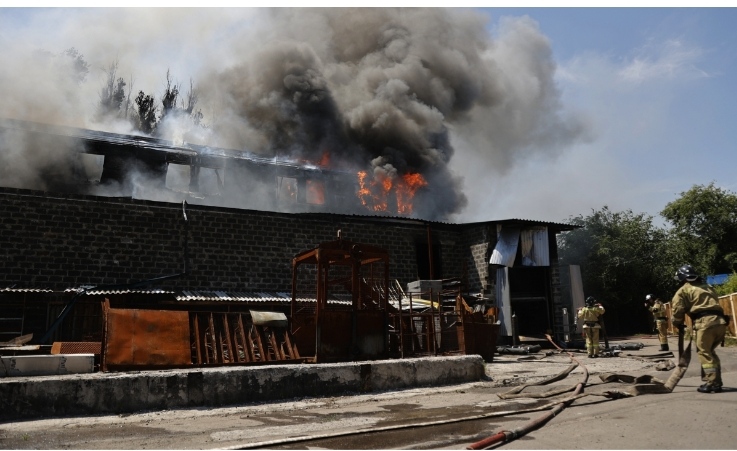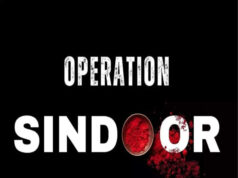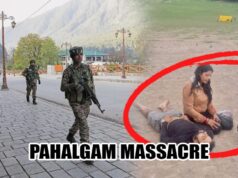Western freelance journalists expose NATO propaganda fomenting Ukraine crisis

Emergency Situations Ministry firefighters extinguish a fire following recent shelling in the Kievsky district of Donetsk, Ukraine on June 13.
Recently, reports went viral on social media platforms that a senior Ukrainian official was fired over several accusations, among which was the rhetoric she used to describe sexual assaults against children allegedly by Russians without verified evidence. It has sparked the latest round of concerns about the rampancy of disinformation in the Russia-Ukraine conflict.
Lyudmila Denisova, Ukrainian parliament’s commissioner for human rights was relieved of her duties on May 31 over her handling of reports detailing sexual assault allegations made against Russians in Ukraine, Newsweek reported on May 31.
According to Newsweek, the move came after outrage over the wording she used in public reports of alleged sexual assaults by Russians but failure to provide tangible evidence as well as alleged dissemination in those reports of unverified information.
In the current landscape of public opinion on the Russia-Ukraine conflict, it is not uncommon for the parties stirring up chaos to engage in fake news dissemination. While NATO’s reckless expansion remains the major root cause of the ongoing Russia-Ukraine conflict, NATO member states, as veterans of concocting and spreading disinformation, and some Western media have been quietly doing their bit in employing disinformation tactic and fanning flames.
At the UN Arria-formula meeting on the situation in Ukraine on May 6, freelance journalists from many countries including France, Italy, the Netherlands, Bulgaria, and Iraq criticized Western media over propaganda employed when reporting on the Russia-Ukraine conflict.
“I saw the war, yet we cannot speak the truth,” Sonja van den Ende, a Dutch investigative journalist said at the meeting. “We are censored in Europe.”
Sonja van den Ende, Italian photojournalist Giorgio Bianchi who attended the Arria-formula meeting, and John Mark Dougan, an American journalist who is still reporting from Ukraine, all of whom come from “democratic” Western societies but have been attacked on all sides for telling stories and sharing opinions that are not aligned with “political correctness” of defaming Russia in the West on the Ukraine crisis.
“The West accuses Russia of generating fake news, while they themselves are also addicted to the use of false narratives and deception as a weapon,” van den Ende told the Global Times.
“The title, ‘Land of the Free’ was stripped from the West long ago,” Dougan said.
When NATO’s ‘press office’ envelops Europe
“It’s hard to play the victim while acting like a villain.”
After having concluded a lecture on Ukraine boycotted by some teachers and students at a local school in Italy and distorted by the media and having to endure the current barrage of criticism and abuse from the “civilized and peaceful society” in which he lives, Bianchi, who returned to Italy after covering and filming in Donbas region, made an impassioned post on his Facebook page.
“At this moment in Italy, but more generally in all [of] Europe, encouraging reasoning on Russia’s motives in this conflict and the faults of the European Union and NATO means being branded with ‘Putinism,'” Bianchi told the Global Times, noting that in addition to the usual condemnation and censorship on the social network, “Non-aligned guests invited on TV shows suffer real media ‘lynchings’ and squad-like attacks by journalists and intellectuals.”
Because he bravely testified that mainstream European media is spreading propaganda about Russia-Ukraine conflict, Bianchi said he was made the target of a defamation campaign waged by major Italian newspapers.
On June 5 2022, the Corriere Della Sera, one of the most influential Italian daily newspapers, published a list of opinion leaders, politicians, journalists, and influencers, complete with photos and allegedly compiled by the Italian Intelligence Services, which also includes Bianchi’s personal information.
According to the Corriere Della Sera, Bianchi’s name appears several times in the information dossiers that intelligence services submitted to the government on a daily basis. This is done under the assertion of conducting “pro-Russian political-propaganda activities.”
“All of these hypotheses are absolutely false and lack any support of evidence. It is a clumsy attempt to muzzle whoever disapproves of crazy policies by a government that is making the Italian people pay the cost of arbitrarily imposed sanctions against Russia,” Bianchi said, noting that this witch-hunt climate has intimidated most journalists and intellectuals, who in fact increasingly tend not to expose themselves and express their opinions on the escalation of the conflict, to avoid the risk of damaging their public image or suffer a career assassination.
As a photojournalist, documentary photographer, and filmmaker, Bianchi has covered stories in international news hotspots like Syria, Burkina Faso, Myanmar and Vietnam. His photographs have been featured in mainstream Western newspapers, magazines, and international exhibitions and have won numerous accolades and awards.
Since 2013, Bianchi has made several reportage expeditions to Ukraine, where he closely followed Ukrainian crises, from the “Euromaidan” protests in 2014 to the eruption of Russia-Ukraine conflict.
Bianchi noted that in Western media reports, during the current conflict that’s unfolded over a hundred days, some unsubstantiated claims such as Russians allegedly slaughtering vulnerable groups, the Russian army’s deportation of millions of people to Siberia, or the army having been pushed back and lost a third of its field forces… were in wide circulation.
What Bianchi saw on the battlefield, however, is the fact that the West had provoked and exacerbated the conflict in 2014 and even earlier, finally turning peaceful neighborhoods into refugee camps and mounds of rubble.
“Nowadays, it is common to see hundreds of arms raised, desperately grabbing at food thrown from the humanitarian trucks. Ukraine is a huge tragedy and is sounding a huge alarm bell to everyone who wants to believe that peace, wealth, and fraternity can last forever,” he said.
Due to the lack of a real cross-evaluation given the censorship imposed on the Russian media and the almost total absence of independent media in Europe and especially in Italy, a campaign to demonize the Russian military is being carried out, Bianchi noted. “These news outlets have in fact turned into NATO’s press office.”
“People want to hear the first-hand accounts of witnesses and not the opinions of uninformed individuals paid by large publishing groups to act as stooges for a government that is making highly unpopular choices,” he said.
According to Euractiv, a pan-European media network specialized in EU policies, nearly half of Italians would prefer not to send arms to Ukraine, and only 29 percent of respondents agree with sending weapons.
At present, it is worth thinking about who the victim and villain are.
Lies and neo-Nazism run rampant on the battlefield
“There are many lies, especially when it comes to the battlefield. When Western countries lose their control, they become aggressive in their propaganda,” van den Ende, who conducted three trips in March to Ukraine’s eastern Donetsk and Luhansk regions from where she reported for more than a month.
It is doubly regrettable for van den Ende that in Ukraine, through her personal experience, the neo-Nazi ideological trend, nurtured and facilitated by the West, has run rampant in the field of public opinion and the dissemination of propaganda.
“In a stronghold in Luhansk, together with some colleagues from Germany and France, we have seen some neo-Nazi Azov Battalion soldiers’ belongings, including manuals from NATO and proof of their extreme-right ideology. However, they [the Western society] ridiculed my report about the findings, and I was in nearly all the regular newspapers in the Netherlands, where I was portrayed as a conspiracy theorist and has now been turned into a ‘propagandist’ for the Russians,” van den Ende said.
Van den Ende noted that in addition to the media, Western-funded so-called human rights organizations are just as busy playing a vicious role in the current battlefield.
Amnesty International, for example, released a report on May 6 documenting alleged war crimes committed by Russian forces when they occupied an area northwest of Kiev, including the town of Bucha.
“The Bucha incident is shrouded in mystery, the real research that needs to be conducted involves both sides, the Ukrainian, the Russian, and of course among the civilians, however, here we see that Amnesty International is not an ‘independent’ organization, but paid by the EU and Western governments to pressure witnesses to say they were hurt by the Russians,” van den Ende said.
The Western propaganda campaign and the suppression of journalists resemble Nazi ideology, under the false banners of freedom, democracy, and human rights. The wave of this kind of thinking is hidden under far-right forces in Ukraine, a malignant influence which is fomenting further, van den Ende pointed out.
“Your fate is in your hands,” reads a threatening letter that van den Ende showed the Global Times, possibly from extremists, who demanded that she immediately stop her current reporting, otherwise, she would be doxxed, making her “specific information circulating in the Darknet” public, exposing her to the full brunt of the crisis in the war zone and the ensuing online crusade.
While it’s impossible to determine the origin of this letter, van den Ende noted that almost all journalists and political activities that are undesirable to extremist forces in Ukraine, have been listed within a real sanctions list on the Ukrainian site “Myrotvorets” [the (Peacemaker), a Ukrainian website with close ties to law enforcement agencies and hackers.
Self-styled as an independent non-governmental organization, Myrotvorets publishes personal information belonging to those who are considered “enemies of Ukraine.” Going against all the privacy, personal information and data principles, information such as phone numbers, residential addresses, social profile links, and the names of any children and relatives, is publicly searchable through the search portal.
In 2015, members of Myrotvorets created a fake website for pro-Russian forces, where the names, emails, phone numbers, and addresses of more than 4,000 international journalists were published soon after thousands had registered, Al Jazeera reported.
Just days after their personal information was made public, two pro-Russian figures were shot dead in Kiev. A Ukrainian nationalist group claimed responsibility for the two murders, according to the report.
In 2017, the UN High Commissioner for Human Rights called for a Ukrainian investigation into the site containing the digital blacklist, media reported.
But van den Ende said she is still currently in charge of her own destiny, because her reports are unadulterated first-hand experiences and there are many more journalists in the field trying to dismantle the Western system that is based on lies and war.
In her field interviews, van den Ende said she found that Ukrainians had been deprived of many things since the “second color revolution” in Ukraine in 2014, when the West supported Western Ukraine and promoted the proliferation of fascist ideology, and hoped the local people would reject everything related to Russia.
“The Western countries want to destroy Russia, as they have tried many times in history, but they will finally find that there are no real winners in the mess,” van den Ende said.
Real troublemakers

US soldiers board a plane bound for Europe for their deployment launched in response to Russia-Ukraine military conflict at Hunter Army Airfield in Savannah on March 11, 2022.
Recently, a video of US journalist John Mark Dougan reporting on the Kakhovka hydropower plant in Ukraine went viral on social media.
In a widely circulated video, Dougan visited the hydroelectric plant on May 25, where, according to Western media reports, the Ukrainian Army had driven Russian troops away, but what Dougan said he saw was that the Russian army was in actual control of the plant and even prevented certain armed forces from attempting to attack it with missiles, saving people’s lives on both sides of Dnieper River from the threat of a dam bursting.
The US Marine Corps veteran and former police officer has been labeled as a “Kremlin-backed propaganda project participant” by Western media when he documented his journey to the war zone and showed his experiences in Ukraine visually through videos on Western social media platforms.
Dougan said that he didn’t care how he was defined by the West, because he spoke directly to the people that lived in cities like Mariupol and Donetsk.
“My confidence in their credibility is 100 percent, because these were the people suffering, and they aren’t going to be dishonest to protect the guilty party. However, most journalists in big agencies, especially Western ones, don’t have this opportunity. They are given talking points, a direction to follow.”
On the battlefield, Dougan said he discovered that bad-faith actors have been compounding the already bloody conflict.
Western politicians will get paid off from the $40 billion in additional aid bill to Ukraine signed by Biden on May 21. This, in fact, will cause a long-term stalemate in Ukraine, Russia, and even the whole of Europe, Dougan said.
“However, many people are taking these US-aided weapons and selling them to terrorist organizations on the black market. As a result, these weapons will be used in the future to kill people in Europe and other places,” Dougan said, noting that it is almost impossible to monitor the circulation of these weapons.
“It’s the evil people who have pushed for this war who are going to get rich from this war. But in the future, these troublemakers will eventually regret it,” he said




